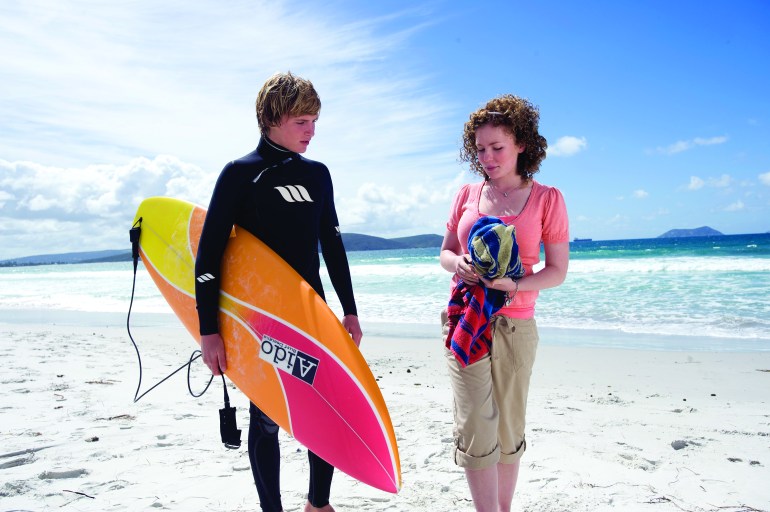‘Lockie Leonard’.
The Australian Children’s Television Foundation has proposed a radical shake-up of the TV quotas and funding for children’s content to correct what it terms is a high level of market failure.
In its submission to the Australian and Children’s Screen Content Review the ACTF contends: “Market failure in relation to Australian children’s content and the need for government intervention has never been more apparent.”
Illustrating the dramatic shift in kids content, from 1997 to 2016 the annual average hours of Australian children’s animated drama has more than doubled from 45 to 96 hours per year while the number of hours of live action drama has halved, from 71 to 35 hours per year.

In that period the commercial broadcasters slashed their reported annual spend on children’s content from around $30 million each to $10 million each, representing less than 2 per cent of their overall content spend.
Due to Screen Australia’s reduced $2 million cap on investments in children’s projects and the low level of investment overall in children’s drama it is now virtually impossible to finance series of 26 episodes, the ACTF says.
That would mean series such as Lockie Leonard and Mortified would not be financed at 26 episodes – yet they are the most successful exports for the ACTF, having recouped their distribution advance and generating returns to investors.
Some 50 submissions to the Content Review, which is being conducted by the Department of Communications and the Arts, Screen Australia and the Australian Communications and Media Authority (ACMA) were received by the deadline last Friday.
However a Department spokesperson told IF that “a number of important stakeholders have requested and been provided short extensions to provide their submissions,” with most expected by the end of this week.
The review will take into account the considerations of the House of Representatives Standing Committee on Communications and the Arts inquiry into the growth and sustainability of the Australian film and television TV.
That committee’s chair Luke Howarth told IF he expects its report will be delivered to parliament in mid-November.
The Content Review is due to report to government by the end of 2017.
In its submission, the ACTF advocates retaining the C drama quota of 32 hours a year of first release children’s drama for each commercial free-to-air broadcaster and reducing the current P (pre-school) drama quota of 130 hours a year of first release children’s drama to just 16 hours.
The definition of drama should be restricted to scripted narrative content and a minimum of 50 per cent of the C drama quota should be live action drama, it said.
The New Eligible Drama Expenditure (NEDE) scheme, which saw pay channels spend $51.2 million on Australian and New Zealand drama programs in the 2015–16 financial year, should be extended to all children’s channels, not just those classified as drama channels, at an increased expenditure level of 20 per cent.
The ACTF also called for a spending quota on SVOD and other domestic and international platforms which should include children’s content. Platforms which don’t wish to commission children’s content should make a contribution to a commercial content fund which would be available for investment in Australian children’s content on other commercial platforms.
In addition, children’s drama producers should be able to access the same indirect and direct funding mechanisms as adult drama.
Restating its key recommendations to the House of Reps inquiry, the ACTF called for:
- The public broadcasting sector to be mandated and funded to deliver a comprehensive multiplatform service for all Australian children.
- Measures to ensure that the commercial sector contributes to and transmits quality and culturally relevant children’s content.
- Funding mechanisms to support the production and distribution of culturally relevant Australian children’s content, including increased federal funding for the ACTF, which now gets $2.8 million a year


